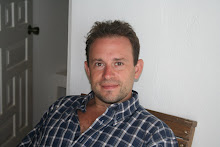Sunday, November 29, 2009
Self-Haul v. Franchise Haul
It is.
On the environmental side, we'll see real benefits from 1 packer truck servicing the same waste as 100 self-haulers. This means much-reduced carbon emissions from vehicles driving to and from the transfer station. Also, island-wide curbside recycling would run earlier than expected, because the local franchise hauler would be able to introduce this service with the expanded and more frequent vehicle routes.
Write your local councilmember to let him or her know what you think about eliminating the self-haul option. And even better, ask you neighbor or friend what they think of it!
Saturday, November 7, 2009
Sustainability Defined
Sustainability: Meeting both environmental and financial needs.
Too often environmental ideas become stalled because they don't make business cents.
Too often businesses or their ideas don't get support because the don't make environmental sense.
Sustainability is the idea that brings these two parts together into a cohesive solution, a balance between the two. We must be careful not to throw too much onto either the environmental or the financial for risk of unbalancing the equation.
Thursday, August 6, 2009
Recycling at Roche Harbor
Our recycling provider had trouble making it up the hill with one-week's recyclables in-tow.
Wow.
Best estimates put the 20-yard packer truck with 700 pounds and 90% full at over 6 tons of recyclables. That's phenomenal! We diverted more than 12,000 pounds of waste from the landfill through our efforts. That's pretty darn good.
I'll post y'all on the savings soon!
Tuesday, June 2, 2009
Laundry
Thursday, May 21, 2009
Solid Waste Matters
Saturday, April 18, 2009
Sustainable San Juans Event
Sustainable San Juans greening your business discussion today went over some of the activities we’ve engaged in at Roche Harbor, especially in the Lodging Division. Here’s a brief summary of what I mentioned:
Three simple steps:
1) Awareness—involve your guests, customers, clients, employees, managers, vendors, partners, collaborators, and community groups when letting people know what’s going on with the business activities you are engaging. Also, don’t forget to create awareness in yourself, by educating yourself on the many opportunities out there in this community.
2) Action—Programs must be simple, systems-based and make sense/cents. Do not make things too complex, too grandiose. Stick to low-hanging fruit. Don’t create a program around one person, even if it’s you. You must create a value-based approach that will carry into everything the company plans and decides. And remember that if it doesn’t pan out financially in the long run or is just too difficult to implement, don’t even start it.
3) Assessment—You must create baseline data and then measure against that at regular and frequent intervals. You need to see where improvements/successes/failures have been made or found. React to data, not emotions.
Tuesday, March 31, 2009
Update to the Climate Change Resolution
Friday, March 20, 2009
Family Gardening
Sunday, March 15, 2009
WasteWise
Saturday, March 14, 2009
Solid Waste
Saturday, March 7, 2009
Compost Happens! on San Juan Island
Thursday, March 5, 2009
Solid Waste Conversation
Monday, March 2, 2009
Ultimate Paint
Friday, February 27, 2009
Unique Amenities
Island Paper & Supply
Green Lodging News
Thursday, February 26, 2009
Calendar for Events
Solid Waste
County Council Update
Sunday, February 22, 2009
County Council Update
Monday, February 16, 2009
Bottled Water in Guest Rooms
Bioplastics
Thursday, February 12, 2009
Sustaining Sustainability
Wednesday, February 11, 2009
(Bio)plastics
Tuesday, February 10, 2009
More Savings at Roche Harbor
Tuesday, January 13, 2009
Grass-Fed in Argentina
I am down in Argentina--and struggling a bit with the keyboard--reading about some sustainable practices I see down here in the beatiful city of Buenos Aires.
Not a lot of recycling in the wastestream. Good use of CFLs. Lots of public transportation for 10,000,000 people. I will learn more about what´s going on here in the coming weeks.
What is really good to know, though, is that the Argentines approach their agriculture in a sustainable way...and one that produces some of the best produce and proteins in the world.
I´m reading The Omnivore´s Dilemma, learning all about the military-industrial agricultural economy in the US. I have never been a vegetarian, nor an organic guy, because, as my wife says, I am avenida contra mana--meaning that I go against the grain for the sake of it. But there is some really interesting stuff going on that is important and needs to change.
Here is the thing that I wanted to write, today, because I don´t yet really have an opinion or action on how this all effects us in the islands...but I do want to say this: There is something NOT RIGHT about the way agriculture and eating is approached in our country. For me, that is the thing with sustainability. The alternative is acting inefficiently, illogically and downright stupidly. There is a better way to do this (whatever the practice is) and we should search out the best answers.
Does anyone have any good information to share on the Best Practice farming on the island???
